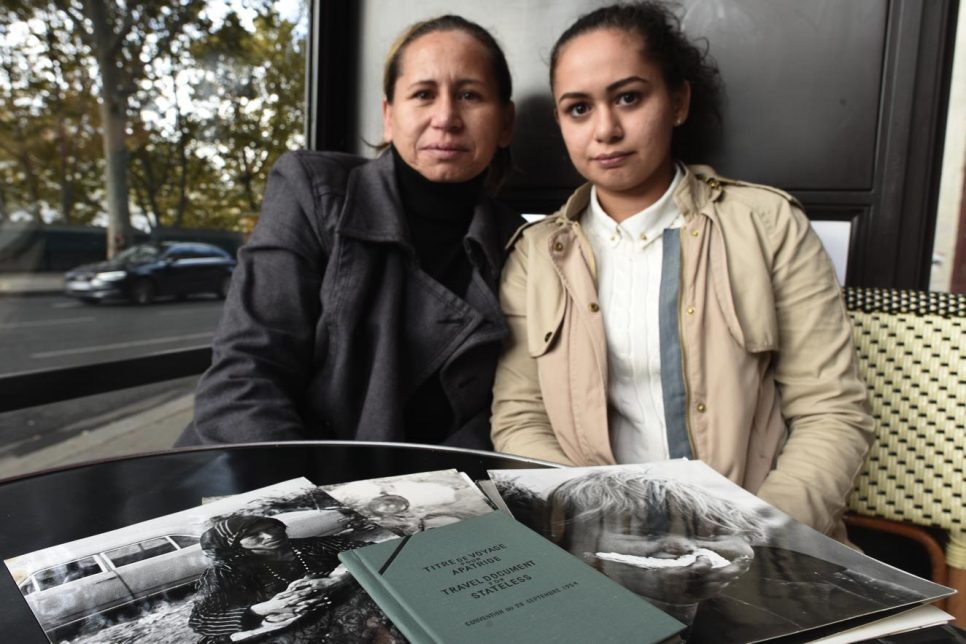PARIS, FRANCE – October 20. The Adzovic family is of Roma, Muslim, and Montenegrin origin. Their family suffered a lot of discrimination for a long period of time. Silvana (the mother) became stateless in 2004 when the Montenegrin authorities told her she did not appear in the civil registry. When Emina, her daughter, was born, Silvana registered her on the passport she still owned at that time. However, when Emina wanted to get her own Yugoslav passport – before the dissolution of the country – she was told that she was not registered anywhere just like her mother.
Silvana
Silvana was born in 1972 in Italy, however her parents registered her in Podgorica, the capital of Montenegro, still part of Yugoslavia at that time. Thus, as a practice, Podgorica has always figured in her (Montenegrin) passport as her place of birth.
The first difficulties she experienced in relation with her nationality was in 2004, when she got married in France. Indeed, she had to go back to Montenegro to get a visa. At that time, her passport was valid until 2007 and yet, she was told at the Consulate that she cannot go to Montenegro because her passport was not valid. Once again, she had to face discrimination at the Consulate: ‘He was holding my passport in his hand and asked me to prove that I belonged to this country’. That is when they told her she was not registered at the civil registry and thus did not possess any citizenship.
‘All of the sudden, everything is cancelled and you are not registered anywhere anymore’.

Silvana (left) and her daughter Emina sit in front of the stateless travel documents that were given to Emina by the French authorities when she was recognized as stateless in 2015. © UNHCR/ Benjamin Loyseau
Emina Adzovic
Emina, Silvana’s daughter, was born in 1994 in Hamburg, Germany, where her family stayed until she was 11. When she was born, her mother registered her on her Montenegrin passport and when the family arrived in France in 2005, Emina held a document for travel of minors.
Troubles started when she turned 18 and needed to submit an application for a residence permit. She was told by the authorities that she needed her passport to request a residence permit in France. She was registered on her mother’s Montenegrin passport but when she made a request to have her own, she realized that she was not registered as Montenegrin citizen. In 2010, the prefecture told her to lodge an application for statelessness status. She was finally recognized as stateless by the French Office for the Protection of Refugees and Stateless Persons (OFPRA) in 2015.
‘When I am here [in France] I feel at home. But French people see me as an outsider. And if one day I go to my country of origin, they will see me as a tourist. But it is here that I feel at home, that I feel comfortable’.
